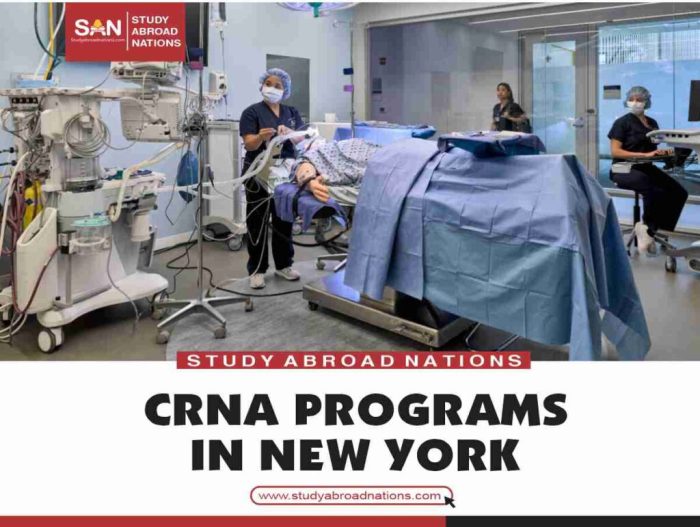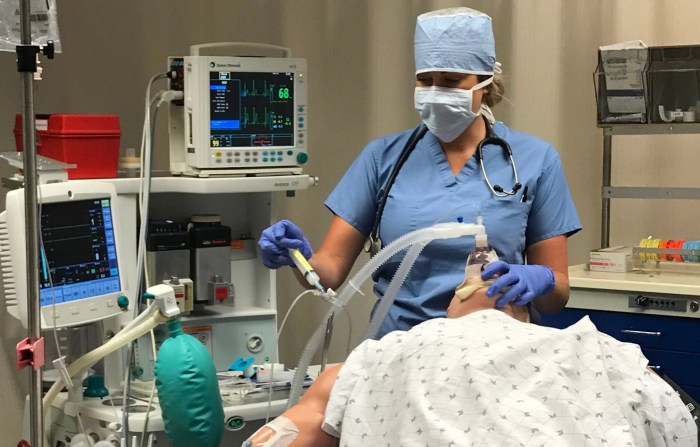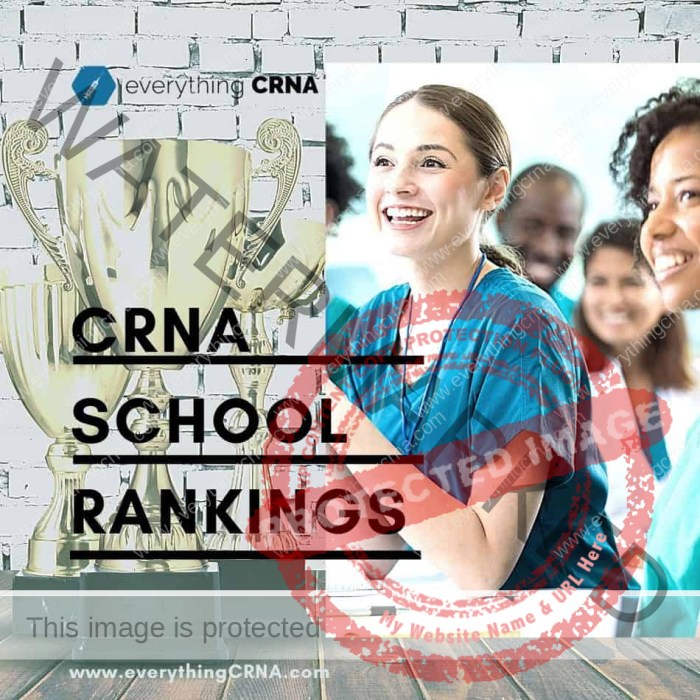Embark on a journey to discover the essential questions to ask CRNA programs. This comprehensive guide unveils the secrets of choosing the right program for your career aspirations. Prepare to delve into a world of knowledge and insights that will empower you to make informed decisions.
As you navigate the complexities of CRNA programs, this guide will serve as your compass, providing you with the tools to evaluate accreditation, curriculum, faculty, admissions requirements, career outcomes, and more. Let’s dive into the questions that will shape your future as a Certified Registered Nurse Anesthetist.
Accreditation and Certification

Accreditation and certification are crucial indicators of the quality and credibility of CRNA programs. They provide external validation that the program meets rigorous standards set by recognized organizations.
Accreditation bodies assess programs based on factors such as curriculum, faculty qualifications, clinical experiences, and research activities. Certification demonstrates that individual CRNAs have met specific educational and clinical requirements.
Recognized Accreditation Bodies
- Council on Accreditation of Nurse Anesthesia Educational Programs (COA)
- Accreditation Commission for Education in Nursing (ACEN)
- American Association of Nurse Anesthetists (AANA)
Each accreditation body has its own set of standards and requirements that programs must meet to obtain and maintain accreditation.
Benefits of Attending an Accredited Program
- Ensures program meets national standards and best practices
- Provides graduates with a competitive edge in the job market
- Enhances credibility and reputation of the program and its graduates
- Facilitates articulation agreements and transfer of credits between institutions
Curriculum and Training: Questions To Ask Crna Programs

The CRNA program curriculum typically spans 2-3 years and is designed to provide a comprehensive foundation in the theory and practice of nurse anesthesia. It comprises a combination of didactic and clinical components.
Didactic coursework covers core subjects such as physiology, pharmacology, and pathophysiology, as well as specialized topics in anesthesia management, including cardiovascular, respiratory, and neurology.
To make the most of your CRNA program, it’s crucial to ask the right questions during the interview process. Similarly, to appreciate the fullness of life, it’s essential to contemplate the fruits of the joyful mysteries . By reflecting on these profound moments, we can gain insights into the blessings that await us when we embrace the path of faith.
As you delve deeper into the interview process, remember to approach each question with thoughtful consideration, just as you would in your spiritual journey.
Simulation and Hands-on Training
Simulation plays a vital role in CRNA training, allowing students to practice procedures and decision-making in a safe and controlled environment. Simulation labs provide realistic scenarios using advanced mannequins and technology, enabling students to hone their technical skills and respond to critical situations.Hands-on
training in the operating room under the supervision of experienced CRNAs is an integral part of the curriculum. Students actively participate in patient care, gradually increasing their responsibilities and gaining practical experience in administering anesthesia and managing perioperative complications.
Clinical Rotations
Clinical rotations expose students to diverse patient populations and surgical settings. These rotations include:
- Cardiac Surgery: Students assist in managing anesthesia for patients undergoing open-heart and other cardiac procedures.
- Neurosurgery: They participate in providing anesthesia for brain and spine surgeries.
- Obstetrics: Students gain experience in administering anesthesia for labor, delivery, and cesarean sections.
- Pediatric Surgery: They learn to manage anesthesia for children undergoing various surgical procedures.
- Trauma Surgery: Students assist in providing anesthesia for trauma patients in emergency situations.
These rotations provide students with a broad range of clinical experiences, enabling them to develop the skills and knowledge necessary to practice as competent CRNAs.
Faculty and Resources

The faculty of the program are highly qualified and experienced professionals dedicated to providing students with the best possible education. They are actively involved in research and clinical practice, ensuring that students are exposed to the latest advancements in the field.
The program provides students with access to a wide range of resources, including a state-of-the-art library, laboratories, and simulation centers. These resources provide students with the opportunity to develop the skills and knowledge necessary to succeed in the field of nurse anesthesia.
Opportunities for Research and Professional Development
The program offers students the opportunity to participate in research projects and attend professional development conferences. These experiences allow students to stay up-to-date on the latest advancements in the field and to develop their skills as nurse anesthetists.
Admissions Requirements and Process

The admission requirements for CRNA programs vary depending on the institution. However, most programs require applicants to have a strong academic record, including a high GPA, competitive GRE scores, and significant nursing experience.
Application Process, Questions to ask crna programs
The application process typically involves submitting an online application, providing official transcripts, submitting letters of recommendation, and completing an interview. Deadlines for applications vary, but most programs have deadlines in the fall or winter. Interviews are typically conducted in the spring or summer.
Special Considerations
Some programs may give preference to applicants with certain qualifications, such as a critical care nursing background, military experience, or research experience. It is important to check with individual programs to determine if they have any specific preferences or requirements.
Career Outcomes and Job Market

The job market for Certified Registered Nurse Anesthetists (CRNAs) is robust, with high demand and favorable salary expectations. The U.S. Bureau of Labor Statistics projects a 12% growth in employment for CRNAs between 2021 and 2031, much faster than the average for all occupations.
Salary Expectations
According to the American Association of Nurse Anesthetists (AANA), the median annual salary for CRNAs in 2023 is $190,000, with the top 10% earning over $230,000. Salaries can vary depending on factors such as experience, location, and practice setting.
Career Paths
CRNAs have a wide range of career paths available to them, including:
Clinical practice
Providing anesthesia services in various settings, such as hospitals, ambulatory surgery centers, and dental offices.
Education
Teaching anesthesia to nursing students or CRNA students.
Research
Conducting research on anesthesia-related topics to improve patient care.
Administration
Managing anesthesia departments or holding leadership positions in healthcare organizations.
Continuing Education and Professional Advancement
CRNAs are required to complete continuing education hours to maintain their certification. They can pursue additional training and certifications to specialize in areas such as pediatric anesthesia, cardiac anesthesia, or pain management. CRNAs can also obtain a Doctor of Nursing Practice (DNP) or Doctor of Nursing Science (DNS) degree to enhance their knowledge and skills.
Clarifying Questions
What are the most important factors to consider when choosing a CRNA program?
Accreditation, curriculum, faculty experience, clinical rotations, and career outcomes are key factors to evaluate.
What is the typical length of a CRNA program?
Most CRNA programs are 2-3 years in length, depending on the specific program and individual student’s pace.
What are the prerequisites for applying to a CRNA program?
Typically, a bachelor’s degree in nursing, a minimum GPA, and experience as a registered nurse are required.
What is the job outlook for CRNAs?
The job outlook for CRNAs is excellent, with high demand and competitive salaries.
